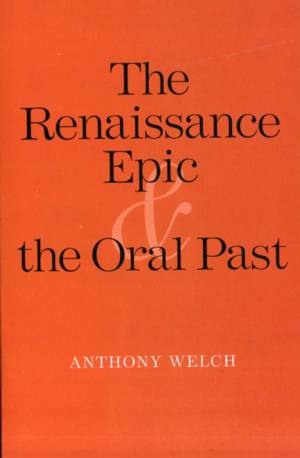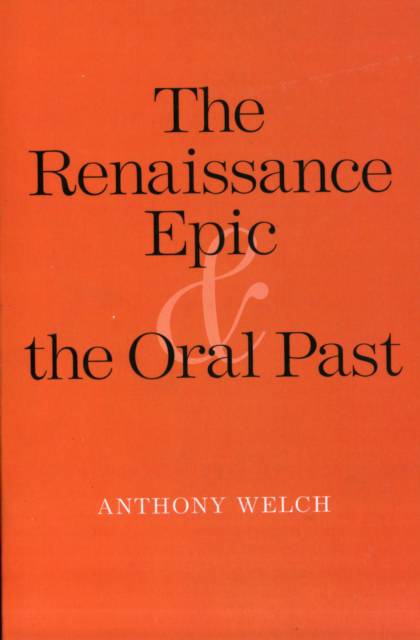
- Afhalen na 1 uur in een winkel met voorraad
- Gratis thuislevering in België vanaf € 30
- Ruim aanbod met 7 miljoen producten
- Afhalen na 1 uur in een winkel met voorraad
- Gratis thuislevering in België vanaf € 30
- Ruim aanbod met 7 miljoen producten
Zoeken
€ 100,45
+ 200 punten
Omschrijving
This book explores why Renaissance epic poetry clung to fictions of song and oral performance in an age of growing literacy. Sixteenth- and seventeenth-century poets, Anthony Welch argues, came to view their written art as newly distinct from the oral cultures of their ancestors. Welch shows how the period's writers imagined lost civilizations built on speech and song--from Homeric Greece and Celtic Britain to the Americas--and struggled to reconcile this oral inheritance with an early modern culture of the book. Welch's wide-ranging study offers a new perspective on Renaissance Europe's epic literature and its troubled relationship with antiquity.
Specificaties
Betrokkenen
- Auteur(s):
- Uitgeverij:
Inhoud
- Aantal bladzijden:
- 268
- Taal:
- Engels
- Reeks:
Eigenschappen
- Productcode (EAN):
- 9780300178869
- Verschijningsdatum:
- 27/11/2012
- Uitvoering:
- Paperback
- Formaat:
- Trade paperback (VS)
- Afmetingen:
- 155 mm x 231 mm
- Gewicht:
- 385 g

Alleen bij Standaard Boekhandel
+ 200 punten op je klantenkaart van Standaard Boekhandel
Beoordelingen
We publiceren alleen reviews die voldoen aan de voorwaarden voor reviews. Bekijk onze voorwaarden voor reviews.











